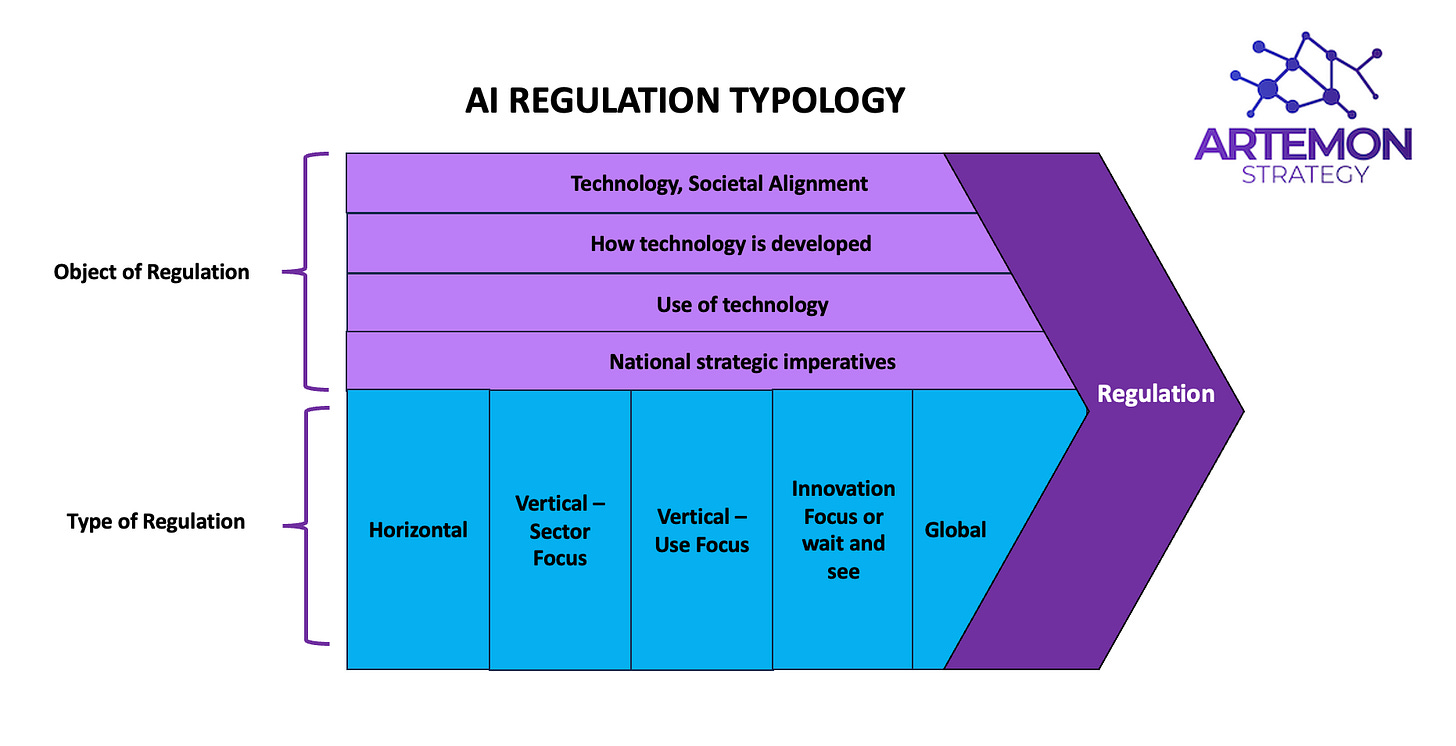IP28: Founder Mode? Why Tech Start-Ups Need To Take Government Relations Seriously
Understanding Public Policy Challenges Could Be the Difference Between Success and Failure
Whatever ‘Founder Mode’ Is It Needs To Include An Understanding Of Public Policy and Government Relations…
The buzz phrase of the past few weeks in the tech world has been “founder mode” - emerging from a piece by Y-Combinator’s Paul Graham.
In essence, the concept is that founders should play a much more active role in the day-to-day running of their business, rather than necessarily delegating to trusted executives. Graham focuses on “skip level” meetings to better understand what’s going on within the business and looks back to how Steve Jobs ran Apple, with his retreats for the “100 most important people at Apple, and these were not the 100 people highest on the org chart.”
There’s been plenty of discussion about the concept that I don’t want to repeat here. I’d recommend a great discussion on Sharp Tech, this piece on CNN and a really interesting (and slightly unexpected) critique on All In.
But the debate brought me back to an issue that I’ve long felt is important. We all know what some of the key skills of start-up founders are - the ability to build a product, identify product-market fit, to communicate a vision, to fundraise, to inspire staff and to identify and exploit areas of potential growth.
However, one of the most important fields for modern start-ups is one of the least discussed - namely, an understanding of public policy and government relations and the ability to understand how public policy can be an inhibitor to corporate growth or a potential route to quicker growth. Regulation can make or break a business, so start-ups in the tech sphere need an understanding of what regulation means for them and how the regulatory environment might develop.
An issue with the Founder Mode argument is that it was aimed squarely at Silicon Valley and ignored the importance of Washington DC, Brussels and other regulatory capitals to business success or failure.
At a time of sprawling tech regulation, which often applies to small tech start-ups as well as global titans, companies can no longer leave government relations to more established players or consider it part of a second or third wave of growth. Instead, it must be part of a start-up plan from the very beginning.
It might be unclear what “founder mode” is, but any successful founder mode must include awareness of public policy and government relations.
A successful founder needs to understand the impact that public policy will have on their business or needs to find people who do understand this. A start-up can get every other aspect of business founding spot on, but a failure to understand and navigate the regulatory environment can be catastrophic to an otherwise perfect business plan.
For anyone wondering, the image above was when I asked Chat GPT to generate an image of a tech founder wrapped up in governmental red tape!
Tech regulation can decide whether tech start-ups can maintain their licence to operate
As I’ve set out in previous Inflection Points, the impact of regulation is no longer at the margins. Instead, it can, particularly for a small business, mark the difference between success and failure. Fines for non compliance can be up to 4% of global turnover in some jurisdictions. A tech start-up is expected to consider regulations across a whole swathe of issues, such as privacy, copyright, safety and user choice, with failure to comply severely impacting a company’s licence to operate.
In such an environment, a tech-driven start-up cannot see public policy as a “nice to have”. Instead, an understanding of the public policy environment in which your start-up is operating must be an essential part of the armoury of any founder. This means, achieving clarity at an early stage about regulatory and public policy issues that impact the business and genuine understanding of exactly what that impact will look like. This should be accompanied by a comprehension of the impact that regulatory proposals will have on an emerging business model and clarity about how a start-up can effectively engage in the regulatory process.
The regulatory environment is being set now. Start-ups need a seat at the table
The bulk of the most exciting start-ups in tech at the moment are based on imaginative use cases of AI. And jurisdictions around the world are considering ways in which AI can be regulated, with the EU’s AI Act leading the way. We covered this in more detail in IP17.
Around the world, governments are considering the contours of AI regulation and this regulation might dictate which AI use cases thrive and which use cases fail to prosper. If a country adopts a “risk-based” approach to regulation, for example, any use case defined by regulators as being of “high risk” would be facing an uphill battle.
This exploratory phase of AI regulation is a crucial phase for start-ups, enabling them to engage in two-way education and exploration with regulators about what technology can do and how it might develop. Start-ups being actively involved in the process means that the case for a more pro-innovation and less restrictive approach can be made much more compellingly.
Once regulation is in place, it becomes much more difficult to adapt and change. This makes it all the more essential that leading-edge start-ups engage effectively with government during the exploratory phase of AI regulation.
It’s all well and good for founders to make the case against excessive regulation as a principle and that case is being cogently made by many in the start-up community. But that broader battle of ideas is separate to ensuring that a start-up has a full understanding of the public policy environment in which it is operating and how to navigate an increasingly complex environment. And that means that tech start-ups need a seat and the table now and must have government relations as a central plank of their business strategy.
Public policy challenges can be difficult to navigate
Navigating public policy is not purely about navigating issues of regulatory compliance. It also has to be about understanding how public policy debate can quickly envelop into discussing the operations of a company or sector, often either fuelled by or fuelling a media debate. This is particularly the case when an innovative start-up is building something that is novel, which can also appear unusual, unfamiliar or even threatening. As such, understanding the regulatory environment is essential for founders to build a proper risk profile for their company and to act accordingly.
Merely understanding the rules is not enough. It’s also crucial to understand the motivations of the stakeholders who look to change the rules in the future, to consider how political pressures can lead to increased regulatory pressure and to better understand how political shifts can change the environment in which a country operates. This requires an understanding of what motivates and influences policy makers. As such, regulatory comprehension for a start-up must be accompanied by an engagement and advocacy strategy, as well as a reasonable understanding of how the regulatory horizon might develop.
Regulatory developments in markets other than a start-ups initial home market also need to be considered, both in terms of what this might mean for a product as a company expands geographically and whether domestic policy makers might be influenced by these regulatory developments overseas.
Disruption means that public policy battles will be waged by the disrupted
The point about tech-driven disruption is that it disrupts established industries, either compelling those established industries to quickly modernise in order to handle disruption or to go into a period of decline. As we have seen in a variety of industries, including news, music and taxi hires, industries that have seen their established business model disrupted by technology tend to fight back against the disrupters. In many cases, this fight back will be using public policy routes, with either direct pushes for regulation to push back against incumbents or using advocacy routes (such as media and campaigning techniques) to reach political decision makers.
Start-ups who are setting out to disrupt should expect the disrupted to kick back and should, at an early stage, develop a government relations strategy to adapt to this. Simply waiting for something to happen is almost always leaving it too late.
Relying on big companies or trade associations to bat for you is important, but not enough
For a start-up operating in a high-octane environment, it might be tempting to leave public policy advocacy to large, established companies, with their considerable legal, regulatory compliance and public policy teams. And in some cases, this can be an effective strategy. But, when regulation can make or break a company, it’s not enough to outsource public policy entirely to larger companies.
Start-ups are often given a much more receptive ear, particularly within their home country than large global players. Tech start-ups might also have either subtle, or more substantial, differences with larger tech companies, making it important that they find their own voice in the regulatory debate. Larger companies can be useful allies. But start-ups need to consider their own specific interests and consider how to make the case in their own specific way. Similarly, start-up trade bodies can be important voices, but the concerns of an individual start-up might be unique, making relying on trade bodies to be an important but insufficient approach to government relations.
Governments should understand the ability of start ups to meet national ambitions
An effective government relations strategy isn’t just an important defensive focus for start-ups, it can also open up the potential for a positive relationship with governments. When a start-up is innovating in a way that aligns with key national priorities, an effective government engagement strategy can see a company positioned as an important national strategic champion. A prime recent example of this would be the close relationship between Mistral and President Macron in France.
Similarly, taking public policy seriously at an early stage can mean that government becomes more aware of what regulators can do to build a pro-innovation climate and help new companies to grow and to scale. Early engagement with government can also help to facilitate access to relevant funding streams, lab space and the kind of partnerships with academia, the public sector and civic society that is a crucial part of effective innovation.




